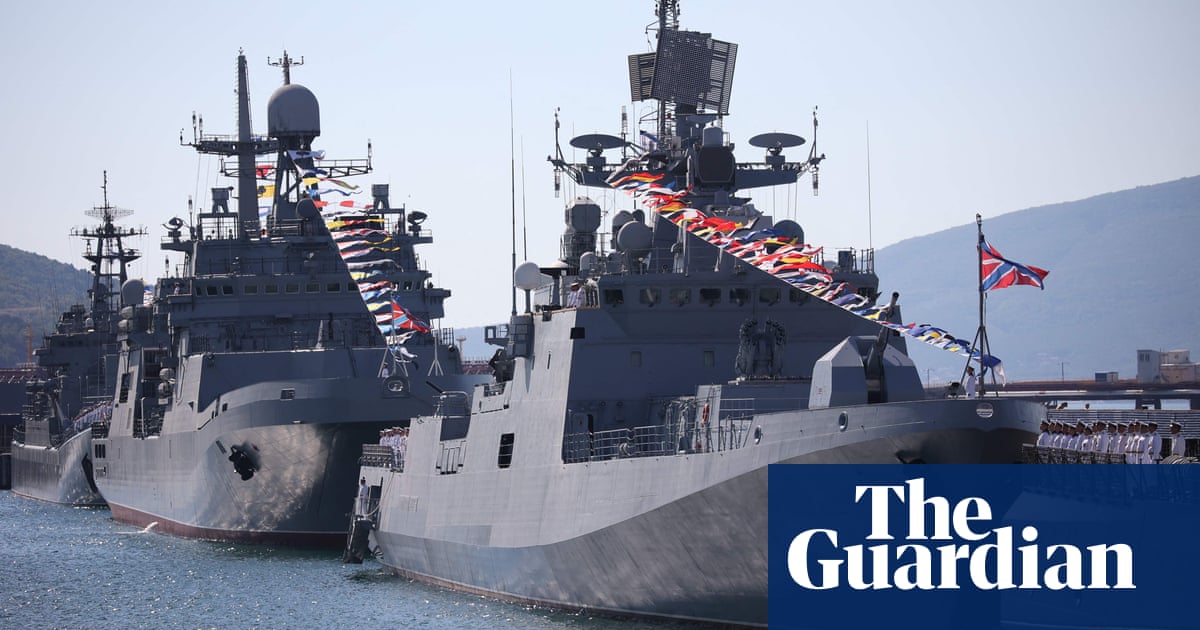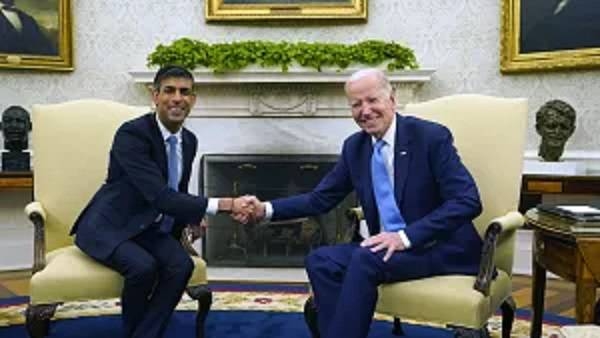
Britain faces a “backdoor” threat to its security from a Russian, Chinese and Iranian presence in the Republic of Ireland, according to a report by an influential thinktank that accuses Dublin of “freeloading” when it comes to European defence.
The UK should also expand its air and naval presence in Northern Ireland, to counter a growing Russian threat on the UK’s western flank, according to the Policy Exchange report, which is backed by two former defence secretaries, Michael Fallon and George Robertson.
The UK and Ireland are at risk from an “acute maritime menace” posed by a Russian doctrine of targeting undersea networks and pipelines and the presence of Russian warships, they say in a foreword to the paper.
Concerns about Russian intelligence operations in Ireland and its vulnerability to cyber-attack are also highlighted in the report, which cites what it describes as an “inordinately large Russian diplomatic outfit in Dublin”.
The embassy had 30 members of staff in 2022, which was more than many other European states with which Russia had closer ties at the time.
Other evidence cited included Russian attempts to expand the embassy significantly, a move blocked in 2020 when the Irish government revoked planning permission on the grounds it was “likely to be harmful to the security and defence of the state”.
China is another significant concern due to its rapid technological advancements and global influence.
Meanwhile Ken McCallum, the director general of MI5, has said Iran stands out as the state that “most frequently crosses into terrorism”. UK authorities uncovered at least 10 potential threats last year related to kidnapping or harming UK-based individuals perceived as enemies of the Iranian regime.
It was an “unavoidable fact” that Ireland had “freeloaded” off the investment of others who were part of Nato, said the report, which added that this “home truth” had been admitted last year by the then taoiseach, Micheál Martin, as a discussion about Irish neutrality deepened.
Discussions about neutrality among Ireland’s political classes have sharpened in the era of Russian aggression under Vladimir Putin, the arrival of Ukrainian refugees, incursions by Russian ships that are suspected of mapping underwater cables, and a 2021 ransomware attack by suspected Russian gangs on the health service.
Ireland’s president has rebuked the government for launching a debate about the country’s longstanding military neutrality and the possibility of joining Nato, saying ministers were “playing with fire”.
The report tried to sound an alarm bell about the consequences of Sinn Féin winning Irish elections in 2025.
“If Sinn Féin wins in 2025, the UK is therefore looking at many more years of an uncooperative, and likely hostile, neighbour in the face of growing external threats,” it said. While Sinn Féin had been on the rise in the Republic and now holds the post of first minister in Northern Ireland, it has slumped in polls south of the border.
Fallon and Lord Robertson, a former Nato secretary general, welcomed the fact that Ireland had been reviewing its defence outlook – as Sweden and Finland have also moved away from neutrality – and called on the UK to encourage its neighbour to strengthen defences and build on a UK-Ireland defence agreement signed in 2015.












